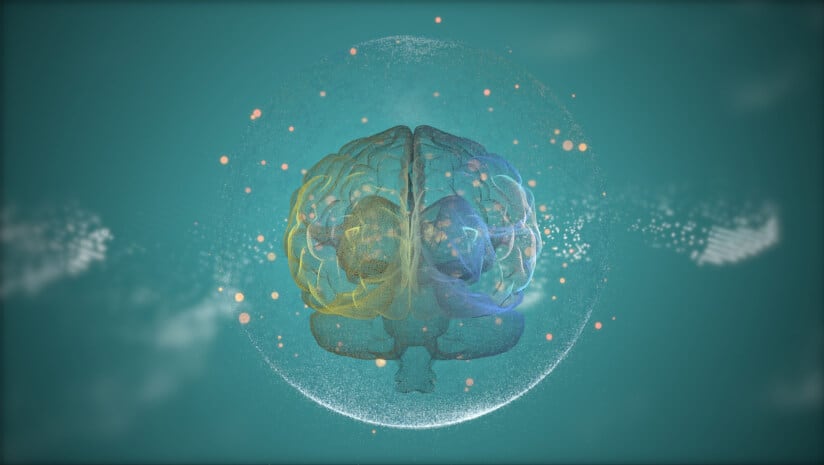A new science review led by ergothioneine supplier Blue California explored the existing body of observational, interventional and mechanistic studies, reporting that ergothioneine does indeed meet the proposed criteria for this classification.
“Ergothioneine has all the hallmarks of a longevity vitamin, a critical dietary compound that our bodies accumulate and use to protect against age-related decline,” said Dr. Linda May-Zhang, vice president of science & innovation at ergothioneine supplier Blue California and lead author on the paper. “In this review, we highlight the breadth of evidence already showing ergothioneine’s role in supporting cognition, sleep and systemic health, while also recognizing the importance of larger, long-term trials to build on this foundation.”
For this work, Blue California collaborated with independent researchers from the National University of Singapore, Flinders University and CSIRO, Australia’s national science organization.
Differentiating ergothioneine for long-term health
The reviewers noted that unlike classical vitamins whose absence causes acute deficiency syndromes, longevity vitamins are defined by their ability to prevent the gradual onset of chronic, age-related conditions.
“Ergothioneine meets several proposed criteria for this classification: It is diet-derived, has a dedicated and evolutionarily conserved transporter, accumulates in stress-vulnerable tissues and has been inversely associated with markers of aging and disease risk,” they wrote in the journal Proceedings of the Nutrition Society. “While not universally accepted as a vitamin, it may be considered a conditionally essential micro-nutrient under the framework of optimizing healthspan.”
Discovered in 1909 in the ergot fungus Claviceps purpurea by French chemist Charles Tanret, ergothioneine is a sulfur-based amino acid found at its highest levels in mushrooms and fermented foods. Exclusively biosynthesized by fungi and mycobacteria, it is captured by plants through their roots and only available to humans through diet. Blue California produces its ErgoActive ingredient through precision fermentation.
In 2005, it was Dirk Gründemann and his colleagues at the University of Cologne who discovered that humans have a powerful and highly specific transporter for the uptake of ergothioneine, attesting to its evolutionary conservation. The body actively transports and stores ergothioneine through this OCTN1 transporter, which is expressed in tissues such as the brain, heart, liver, red blood cells and muscle.
“This tells us that ergothioneine is not a passive antioxidant but an actively managed molecule that supports cellular protection and repair across organ systems,” Dr. May-Zhang said. “What’s especially intriguing is its broad potential, from brain and physical performance to red blood cell, skin and auditory health, pointing to truly whole-body benefits for healthy aging.”
The discovery of the ergothioneine transporter sparked a scientific stir around the compound’s potential as an essential micronutrient, and a subsequent study by the late and prominent biochemist Dr. Bruce Ames upped its status, proposing ergothioneine as one of several potential ‘longevity vitamins’. Others included vitamin K, selenium, vitamin D, magnesium, omega-3 fatty acids, choline, pyrroloquinoline quinone, queuine and carotenoids.
Evidence from observational studies has linked low ergothioneine blood levels to frailty, cognitive decline and even mortality risk, Dr. May-Zhang added, while recent interventional studies indicate that supplementation may improve cognitive performance and enhance sleep quality, suggesting “a true biological effect rather than mere association.”
She also noted evidence that regardless of diet, ergothioneine levels in the body naturally decline with age—a loss that “may reflect reduced intestinal absorption or impairment of the OCTN1 transporter itself, potentially from age-related oxidative stress or tissue dysfunction.” If left unchecked, this loss may affect the body’s natural ability to preserve mitochondrial and tissue health over time.
Protecting powerhouses and activating master switches
Regarding the potential mechanisms at work, the review indicates that when ergothioneine accumulates in stress-prone tissues, it improves mitochondrial bioenergetics, reduces inflammation and enhances resilience to oxidative damage.
“Inside our cells, ergothioneine helps neutralize harmful free radicals, bind to excess metals like iron and copper and activate Nrf2, the body’s master switch for antioxidant defenses,” Dr. May-Zhang explained. “It also helps protect mitochondria, the ‘powerhouses’ of our cells, to keep energy and function strong.”
Beyond these effects, she said that ergothioneine may also promote the growth and repair of brain cells, boost key brain-supporting factors such as BDNF and prevent the buildup of toxic proteins linked to neurodegenerative diseases. Emerging evidence points to roles in supporting NAD⁺ metabolism and activating sirtuins, enzymes that are vital for repair and longevity. Preclinical research suggests ergothioneine reduces telomere shortening, which may slow the aging process.
“Together, these findings show that ergothioneine is a uniquely protective dietary compound that supports both brain and body health as we age,” Dr. May-Zhang said.
Key findings
• Observational studies consistently link low blood levels of ergothioneine with increased risk of cognitive impairment, neurodegenerative conditions, cardiovascular disorders, frailty and mortality.
• Interventional studies in older adults suggest supplementation may improve cognition, memory and sleep quality, while stabilizing biomarkers of neurodegeneration, at safe doses up to 25 mg/day (although no official daily intake level has been established)
• Mechanistic research demonstrates that ergothioneine may protect through multiple pathways, including reducing oxidative stress and neuroinflammation, preserving mitochondrial function and potentially influencing neurogenesis and NAD⁺ metabolism.
• Beyond the brain, ergothioneine shows potential benefits across other aging-relevant systems, including cardiovascular, metabolic, gut, liver, kidney, immune, skin and lung health.
Despite ergothioneine’s broad cyto- and neuro-protective properties, high bioavailability and targeted tissue distribution, the review notes that research gaps remain.
“Longer, well-powered clinical trials across diverse populations are needed to establish causality, optimal dosing, sex differences and potential synergy with other longevity nutrients,” the reviewers wrote. “Bioavailability may also be influenced by genetic polymorphisms in the OCTN1 transporter, age and gut microbiota composition. Developing reliable, clinically accessible methods to measure ergothioneine status may also help guide personalized interventions.”
Building the science through collaboration
This latest review folds into Blue California’s ErgoActive Research Program for Healthy Aging and Longevity, launched in mid-2025 to formalize the company’s ongoing research investments and collaborations.
Co-authors on the review included principal investigators from a recently published clinical trial on ergothioneine supplementation on cognitive function, memory and sleep. The most significant finding of the 16-week study, according to the researchers, was that participants showed a dose-dependent improvement in subjective prospective memory—the ability to remember to carry out planned actions, while the placebo group declined.
“After presenting our recent clinical findings at a scientific conference, we were invited to write this review, and it felt natural to collaborate with Dr. Irwin Cheah, one of the few in the world with complementary clinical data in cognition and aging,” Dr. May-Zhang said. “We wanted to work with a team that has defined much of the foundational science in this field.”
Dr. Cheah is part of team led by Distinguished Professor and biochemist Barry Halliwell, which has been leading research on ergothioneine biology for over two decades, from uncovering mechanisms to studying its effects on brain health and mild cognitive impairment. One of the lab’s more recent studies assessed ergothioneine levels of elderly Singaporean participants before developing dementia.
“Our findings demonstrate that if your [ergothioneine] levels are low, your risk of developing cognitive problems increases,” Professor Halliwell shared in press release at the time, suggesting the compound as a predictive biomarker for cognitive impairment.
The Halliwell Lab has also reported that unlike other dietary antioxidants like vitamins C, E and flavonoids—which have poor bioavailability, are rapidly metabolized or are poorly retained in tissue, ergothioneine is readily absorbed, resists metabolism and accumulates in certain tissues predisposed to high-stress.
As strategy to expand its research program, Blue California continues to seek out research collaborations across academic and clinical setting, offering to provide high-purity ergothioneine to accelerate discovery and translation into practice.



